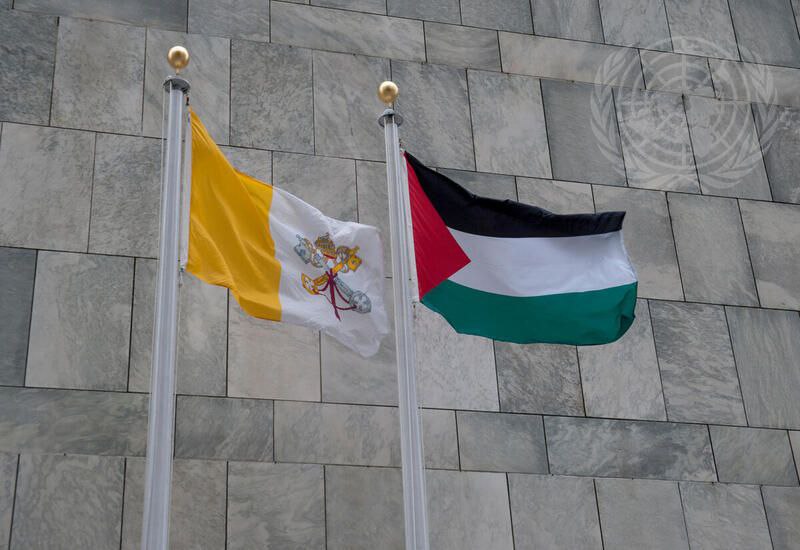Palestine Recognition: A Historic UN Shift
Introduction-France Palestine ONU: The recent recognition of the State of Palestine by France and several other nations during a landmark United Nations summit marks a turning point in global diplomacy. This decision has ignited debates, celebrations, and a new wave of geopolitical analysis. Supporters see this as a long-overdue step toward justice, while critics warn of potential destabilization in an already fragile region. The move is not merely symbolic it is a diplomatic statement with deep consequences for peace negotiations and international relations.
Global Reactions: The announcement sparked widespread reactions across world capitals. In Paris, political leaders emphasized that the recognition was a moral obligation and a necessary step to revive peace talks. Across Europe, parliaments debated the decision with intense passion, while some Middle Eastern countries welcomed the move as a victory for Palestinian self-determination. Conversely, Israeli officials expressed strong opposition, stating that unilateral recognition undermines direct negotiations and encourages hostility rather than dialogue. The diversity of responses highlights the complexity of this diplomatic shift.
Impact on Diplomacy: The recognition of Palestine has potential ripple effects on diplomatic alliances. Countries traditionally aligned with Israel may reconsider their positions, while others could be encouraged to follow France’s lead. International organizations may also face pressure to adapt their frameworks to include Palestine as a full member. Experts suggest that this move could either accelerate a two-state solution or deepen the political deadlock if not accompanied by robust peace-building measures.
Palestinian Leadership Response: Palestinian authorities hailed the decision as a historic breakthrough. Speeches from Ramallah described the recognition as a major victory in their decades-long struggle for statehood. Social media was flooded with celebratory messages, images of flags waving, and calls for further international support. At the same time, Palestinian leaders urged for concrete follow-up steps, including renewed negotiations under fair and balanced conditions, to ensure that this recognition translates into real change on the ground.
France Palestine ONU: implications for Middle East peace
The decision by France and other nations to recognize Palestine during the UN summit carries profound implications for peace in the Middle East. By officially acknowledging statehood, these countries send a message to both Israelis and Palestinians that international mediation and adherence to UN resolutions are vital. This recognition could encourage renewed dialogue between the parties and provide leverage for mediators seeking compromises. Analysts suggest that if managed wisely, it could serve as a catalyst for broader regional agreements and a roadmap toward stability, potentially reshaping the geopolitical dynamics of the region.
France Palestine ONU: reactions from international organizations
International organizations, including the United Nations and the European Union, have closely monitored this historic recognition. UN officials highlighted that such steps must be accompanied by constructive engagement on peace processes, humanitarian aid, and institutional support for Palestinian governance. The European Union expressed cautious optimism, noting that recognition could strengthen diplomatic channels and provide momentum for conflict resolution. However, these bodies also emphasize the importance of balancing recognition with ongoing negotiations to prevent escalation of tensions. The inclusion of Palestine in more diplomatic dialogues might open avenues for development, economic partnerships, and humanitarian projects across the region.
France Palestine ONU: potential global influence
Beyond the immediate region, France’s recognition of Palestine may influence global politics and foreign policy strategies. Nations in Asia, Africa, and Latin America may take cues from this precedent, adjusting their diplomatic stances accordingly. This move could increase pressure on countries that have not yet recognized Palestine, amplifying global advocacy for justice and human rights. Observers note that the decision demonstrates France’s willingness to take bold steps on the international stage, positioning itself as a proactive leader in diplomacy. Such actions often generate a ripple effect, inspiring similar initiatives in other protracted conflicts worldwide, reinforcing the idea that proactive recognition can be a powerful tool in international relations.
France Palestine ONU: regional political dynamics
La reconnaissance officielle de la Palestine par la France et plusieurs autres nations lors du sommet de l’ONU a provoqué un véritable bouleversement dans les dynamiques politiques du Moyen-Orient. Les pays directement impliqués dans le conflit ainsi que les États voisins évaluent désormais attentivement les implications diplomatiques de cette décision.
Pour certains, il s’agit d’une opportunité historique de relancer les négociations de paix et de soutenir la construction d’un État palestinien viable. Pour d’autres, la prudence reste de mise, car toute action précipitée pourrait provoquer des tensions diplomatiques ou modifier les alliances stratégiques existantes. Les analystes internationaux soulignent que cette reconnaissance élève la question palestinienne au niveau mondial, obligeant tous les acteurs à repenser leurs politiques et à adopter une approche plus équilibrée et concertée pour résoudre le conflit.
France Palestine ONU: United Nations perspective
Les Nations Unies ont salué cette reconnaissance tout en insistant sur la nécessité d’accompagner cette décision par des mesures concrètes de paix et de stabilité. Les responsables de l’ONU rappellent que la reconnaissance seule ne suffit pas et doit être complétée par un soutien humanitaire, économique et diplomatique actif. Selon un rapport du Secrétariat de presse de l’ONU, les États reconnaissant officiellement la Palestine peuvent contribuer à relancer les dialogues multilatéraux, renforcer le respect du droit international et faciliter la mise en œuvre de projets de développement et de gouvernance locale. Cette approche permet non seulement de soutenir le peuple palestinien mais aussi de renforcer la crédibilité des institutions internationales dans la résolution des conflits régionaux.
France Palestine ONU: global diplomatic influence
À l’échelle mondiale, la reconnaissance de la Palestine par la France peut inciter d’autres pays à reconsidérer leur position diplomatique. Cette initiative établit un précédent, démontrant que les États prêts à prendre des positions courageuses peuvent influencer le discours international et orienter les décisions politiques mondiales. Les experts estiment que cette dynamique pourrait entraîner un effet domino, favorisant une reconnaissance plus large de la souveraineté palestinienne et un soutien accru aux initiatives de paix internationales. Elle positionne la France comme un acteur diplomatique proactif et innovant, capable de lier considérations morales et stratégies politiques pour obtenir des résultats tangibles à long terme.
Conclusion
La reconnaissance historique de la Palestine par la France et d’autres nations lors du sommet de l’ONU constitue une étape majeure dans la diplomatie mondiale. Bien que le chemin vers la paix reste complexe et semé d’embûches, cette décision envoie un message fort sur l’importance de la justice et du dialogue renouvelé. Les gouvernements et organisations internationales sont désormais encouragés à transformer cette reconnaissance en mesures concrètes sur le terrain. Pour consulter des analyses détaillées et les réactions de l’opinion publique sur cette décision, visitez notre section Government Statements Mauritius pour découvrir davantage de rapports et perspectives sur la diplomatie internationale.




